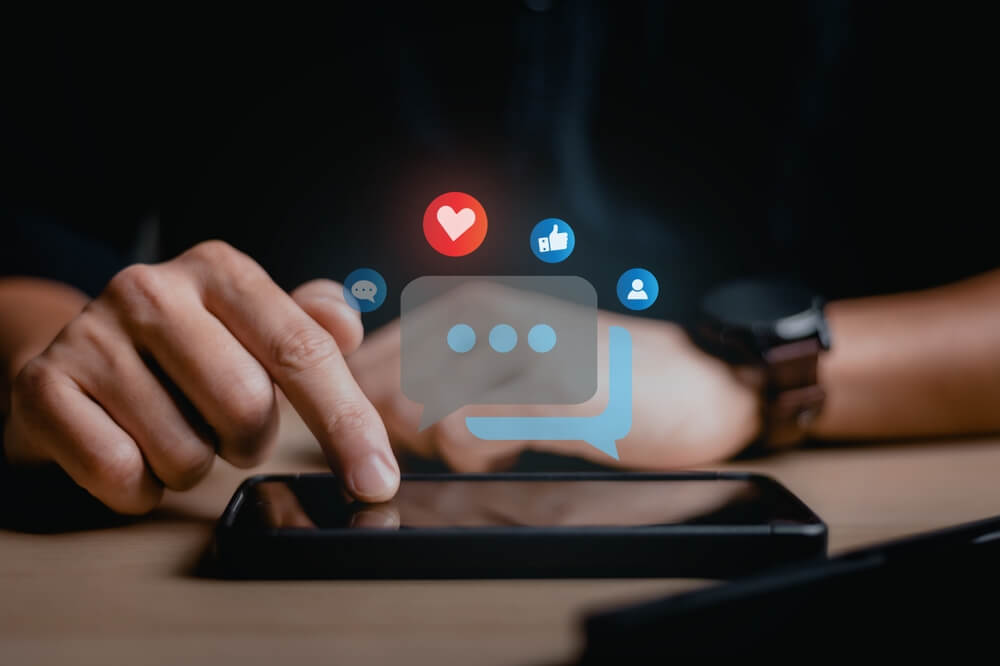The Impact of Social Media On a Personal Injury Case

Social media has undeniably woven itself into the fabric of urban living, and its influence extends to personal injury law. While it can serve as a powerful tool for evidence and communication, it also poses risks that should not be underestimated. If you are involved in a personal injury claim, you should walk through the digital area with caution, mindful of the potential impact of your online presence on the outcome of your legal proceedings. An outstanding and dependable personal injury attorney can help you tackle legal challenges, build a strong claim, and work toward the best possible outcome.
Admissibility of Social Media Posts as Evidence in Georgia
Courts in Atlanta may consider social media content as evidence. Based on this, certain considerations and rules govern the admissibility of social media evidence.
- Social media posts must be relevant to the issues in the personal injury case.
- The posts should be created by the user claimed and not been altered.
- Content with restricted visibility or marked as private may require additional steps to be considered admissible.
- Statements made on social media may be considered hearsay, which is generally excluded from evidence.
- Positive Impact of Social Media on Personal Injury Claims
Evidence Gathering
Social media platforms can provide valuable evidence to support a personal injury claim. Posts, photos, and videos that depict the accident, injuries, or the aftermath can serve as vital documentation. Timestamps on posts and location tags can provide critical information about when and where an event occurred. This can be useful in corroborating the timeline and details of an incident. Social media platforms may contain witness statements or testimonies related to the incident. These can be captured through posts, comments, or messages and can be important for building a case.
Establishing Credibility
Thoughtful and consistent posts can help establish the credibility of the injured party. Updates on medical treatments, recovery progress, and life adjustments provide a human element that may resonate with a judge or jury. Documenting your journey can humanize your experience, providing a transparent view of the challenges you have faced and overcome. This transparency contributes to the credibility of your injury claims. Social media can also be used to showcase your professional achievements, certifications, or relevant accomplishments. This can help establish your credibility, particularly if your personal injury case involves aspects related to your profession.
Communication
Social media enables efficient communication between clients and their legal representatives. It allows for the quick sharing of information, updates, and clarifications that can strengthen the case. Honest and open communication can help manage expectations and build trust with those following the case. It can also help you connect with medical experts and advocacy groups. Building connections with experts in the field can provide valuable insights and support for handling the complexities of a personal injury case.
Social Media Can Go Against You in an Atlanta Personal Injury Case
Contradictory Evidence
On the flip side, social media can be a double-edged sword. Posts that appear innocuous at first glance may be interpreted differently by the opposing counsel. Inconsistent statements or activities may be used to challenge the severity of injuries or their impact on daily life.
Privacy Concerns
Privacy settings on social media are not foolproof. Even seemingly private posts can be accessed, and defense attorneys may use them to dispute claims. It’s essential to be mindful of what is shared online, even with restricted settings.
Social Media Investigations
Insurance companies and defense attorneys often conduct thorough social media investigations. They may scrutinize profiles for any information that can be used to dispute claims, making it imperative for plaintiffs to exercise caution in their online activities.
Tips to Make Social Media Work for Your Personal Injury Claim
Here are some tips to leverage social media effectively while minimizing potential risks:
- Consult with Your Attorney: Always consult with your premises liability lawyer before posting anything related to your personal injury case. They can provide guidance on what is appropriate to share and what should be kept confidential.
- Adjust Privacy Settings: Adjust your privacy settings to control who can view your content. Restricting access to a select audience minimizes the risk of misinterpretation and potential use against you in legal proceedings.
- Avoid Case Discussions: Steer clear of discussing specific details of your case on social media. Legal matters are best discussed in private with your attorney to ensure that sensitive information is not inadvertently disclosed.
- Document the Journey: Document your recovery journey transparently. Share updates on medical treatments, rehabilitation, and milestones. This can humanize your experience and provide evidence of the impact of the incident on your life.
- Share Information: Share general information about personal injury law, the legal process, or aspects of your case that don’t compromise confidentiality. This can contribute to awareness and understanding.
- Control Tags: Be cautious about being tagged in posts or mentioned by others. You have control over these settings, so use them wisely to manage your online presence.
- Regularly Review Content: Regularly review your social media content to ensure that it aligns with the legal strategy and doesn’t inadvertently jeopardize your case.
Legal Help is Here from Highly-Rated Personal Injury Attorneys in Georgia
At DuBose Miller, our skilled and dedicated personal injury lawyers understand the physical, emotional, and financial toll an accident can take on your life. Our lawyers will apply all necessary resources to hold the negligent parties liable and obtain the largest possible compensation for your injuries and losses. To set up your free consultation, call (404) 720-8111 or reach us online.
